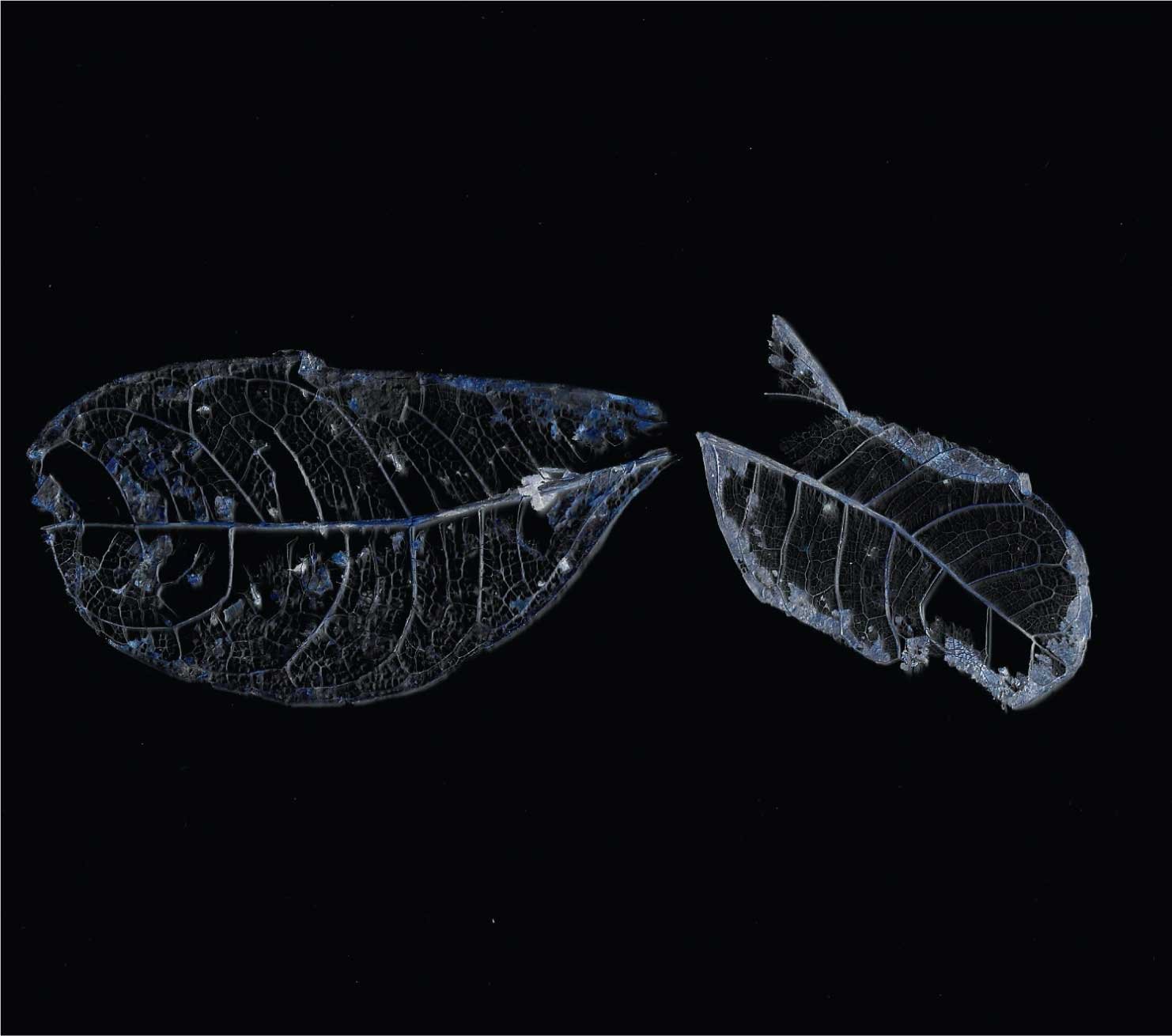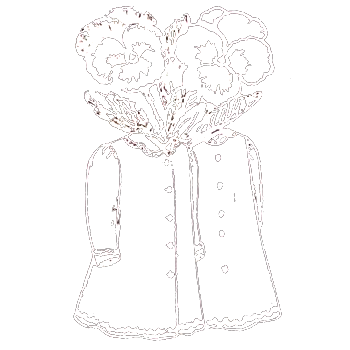
Herstory
Being a poet-publisher is making a nest for the work we love and completely intertwined with the poems we write. I want to publish the work I most love so it will be in the world, and for those like me who want this work and need this work (which I believe to be everyone) to be able to walk into a bookstore or library and find it in the right place in the alphabet on the shelf and be able to pull it out and read it and then write in new ways like I want to do. After brain-storming a list of over fifty names, I chose Tender Buttons in tribute to Gertrude Stein’s radical poem of everyday life, now beyond its 100th anniversary year of publication. To “Tend Her Buttons” is to me to nurture and publish experimental women’s poetry, to tend the buttons of books, each book to be born a complex object forever folding outwards. I think of the books as multi-faceted objects, written from many angles, and unfolding in different ways, like Stein's “cubist” writings.
When I found that Bernadette was in search of a publisher for her Sonnets I realized I had the perfect first book for my new press. And then Anne Waldman presented me with a love poem to Bernadette so I had my second book ready-made. Harryette Mullen’s Trimmings was a wonderful third book, extending the main thrust of the press, as she begins her afternote to the book,“Off the Top,” Trimmings was a way for me “to think about women and language.” She uses the language of women’s clothing to playfully skewer interlocking notions of race and gender, touching many nerves and further opening the flower of Tender Buttons, both the press and the poem, working and playing to change the way people perceive the world.
Fourth in the series was a very different book, a memoir written in short series of narratives by my maternal grandmother, Agnes Lee. It was written, often late at night upon waking in her eightieth decade and published for her ninetieth birthday.
It belongs to the vast underground genre of family histories, often written by women and published in small editions for immediate circles, yet has elements that link to such great innovations as Joe Brainard’s “I Remember” when she writes a list of “100 Things I’d Like to Do Again.” Women’s histories are our histories, often untold.
I was becoming surprised by how much poetry-using-prose forms I was publishing. Rosmarie Waldrop, (another major poet-publisher figure in my life), wrote Lawn of Excluded Middle which to me reverberates with Harryette’s threads of subverting and playing directly with another’s text: this time Wittgentstein’s sentences, to create “(p)oetry: an alternate, less linear logic” specifically dealing with “women as the excluded middle,” or “the empty center from which we write.” And that continued to be so with most of Hannah Weiner’s silent teachers remembered sequel and Dodie Bellamy’s Cunt-Ups inhabiting and remaking the prose poem form (and later Laynie Browne’s Pollen Memory, and today Katy Bohinc’s Dear Alain.) In different ways, all of these works play with echo, intertextual appropriation and interpenetration from other disciplines: philosophy, science, porn…“Poetry as a theory of everything” said Maria Damon recently in her stitchery. Hannah’s work contains a radical take on the anxiety of influence and the “silent teachers” we all have within us start to speak as we read the map of her mind moving. Dodie’s Cunt-Ups asks us “Is the cut-up a male form?” Who owns the language? How is poetry perhaps the only way to chart various stages of vast sexualities?
A radically refigured lyric sensibility arose with Jennifer Moxley (the poet-publisher of The Impercipient whose subtitle was “A Silent Pillow of a Generation”) when she addressed Imagination Verses “To My Contemporaries” and remade the Ode in a mod-Keatsian kind of material language. That book was a landmark for a new generation of younger poets eager to engage with poetic permissions past and present. Then, in Laynie Browne’s alternation of intricate biospheres of words with condensed genes of single lines prefigured today’s engagement with “ecopoetics” and what the sciences and poetry have necessarily to say to each other. Pollen Memory’s question “what are my thoughts during sleep” and India Radfar’s “sleep is my way of thinking” and dreamwork show kinship with Bernadette’s hypnogogia, and both India and Harryette Mullen gesture toward Sappho in very different ways. Trimmings begins with “Don’t ask me what to wear” and India writes “girls who like water / swim at the foot of / another time.” Her book, written in Greece is double in structure, as Hannah’s is, but in a vastly different landscape of sun and lyric.
During the double production of Browne & Radfar’s books a new wave of creation happened in my life: the birth of my child, Emrys! I was also becoming increasingly concerned with poetry in performance, and how poetry interacts with the other arts. (In 2003 my own book, The Sleep That Changed Everything contained eight rewritten ballads and hymns that formed the heart of the Song Cycle The Thirteenth Sunday in Ordinary Time). It was at this time that Michelle Rollman’s collaborative book, The Book of Practical Pussies was brought to light in collaboration with Krupskaya Press. Michelle’s erotic drawings of cat-splice-women were interwoven with “pussy writing” solicited from some of her favorite writers, a very different book from Old Possum’s Book of Practical Cats.
The Book of Practical Pussies was designed by Wayne Smith who I met through Dodie Bellamy and who designed Cunt- Ups and many other books after that. I‘ve had many adventures in collaboration and shared labor with many people passing through my sphere: Laynie Browne heroically typed Hannah Weiner’s and other manuscripts, Steven Taylor and Lisa Jarnot helped with early graphic design, Greg Masters provided me with real laser prints from my Pagemaker print-outs before the days of digital printing. Frank Murphy, who I worked with on the NYC Poetry Calendar, told me where to go to make plates and helped me print Not A Male Pseudonym on an offset press in Park Slope, Brooklyn. The list goes on as you can imagine! A new generation of poets has come forth, further proliferating the multiple states of the art. I am so grateful to the dreams and energies of Katy Bohinc and Cassandra Gillig who have manifested the Tender Buttons vision on all levels from the aesthetic to the worldly- and so excited for the future!
—Founding Editrix, Lee Ann Brown
CLMP awards Tender Buttons Press and founder, Lee Ann Brown, the Lord Nose Award.
The Community of Literary Magazines and Presses announces the winners of the 2019 FIRECRACKER AWARDS, given for the best self- and independently published books of fiction, creative nonfiction, and poetry. The LORD NOSE AWARD is given in recognition of a lifetime of superlative small press publishing. 2019

